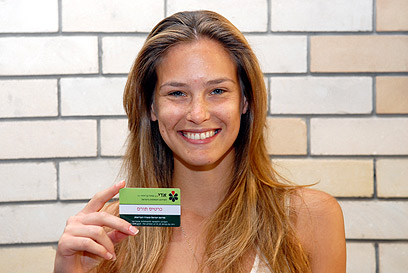What’s the first thing that comes to your mind when you
think of Bar Refaeli, the well-known and widely photographed Israeli
supermodel?
For Israelis—at least, those who’ve been following the news
lately—there’s a different
answer.
Yes, Bar Refaeli is an international celebrity. Yes, she recently starred in a highly
publicized commercial that aired during the Superbowl. That got a lot of
publicity here, as elsewhere.
But Refaeli is now in the news for a different reason. She was recently invited by Israel’s Foreign
Ministry to participate in making a Youtube video promoting Israel. According to the ministry, “the video will
show various objects made in Israel,” such as tomatoes, computer chips,
and—yes, you guessed it—Bar Refaeli.
Now, you wouldn’t think that that would be particularly controversial,
but it is. The reason is that many
Israelis do not consider Refaeli appropriate to represent Israel in an Israeli
government video. This has nothing to do
with the clothes she wears, or doesn’t wear—though she has received her share
of criticism in that regard.
Rather, it has to do with two things about Bar Refaeli that
you might not know if you’re not Israeli.
The first is that she didn't serve in the Israeli army. That, in and of itself, is less controversial
than it used to be. More and more young
Israelis—particularly women—do not serve, for one reason or another.
However, Refaeli is also known for something else, namely,
expressing pride and satisfaction with that decision—rather than guilt or
remorse. Responding to criticism of her
decision, she is famously alleged to have said that “celebrities have other
needs.” That response bothered a lot of
people here.
When news of the Foreign Ministry’s video project broke, Yoav
Mordechai, a spokesman for the IDF (the Israel Defense Forces, Israel's armed forces) wrote a letter
protesting Refaeli’s appearance. “This
sends,” he wrote, a “negative message” to Israeli society. “In recent years, the IDF has been trying a
variety of methods to improve the value of military service and to combat draft
evasion in order to preserve the societal value that sees the IDF as the people’s
army.” Using Refaeli in the video,
Mordechai continued, demonstrates an unduly lenient and forgiving approach to not
serving in the army.
The Foreign Ministry dismissed the army’s concerns. “We are not in the business of boycotting
people; we fight boycotts,” the Ministry spokesman said. “We certainly don’t boycott someone who
volunteered to appear.”
And so, it seems, the video will
feature Refaeli.
This particular episode may recede in the public’s consciousness,
but the issue will not go away. In fact,
seeking to distribute the responsibility to serve in Israel's army among the entire
population was a key issue in the recent national elections here. Shivyon
ha-netel—i.e., concern regarding the “equality of the burden (of national
service)”—is understood to have been a key reason why many Israelis voted for
either the Yesh Atid party or the Bayit Yehudi party. Those voters weren't thinking about Bar Refaeli. They were thinking of the tens of thousands of ultra-Orthodox men who are currently granted virtually automatic exemptions from national service.
This has long infuriated families whose sons and daughters serve, and it now looks like something may actually be done about this. As a condition for entering the new
government’s coalition (which was sworn in yesterday), leaders from both Yesh Atid and Bayit Yehudi (who together garnered 31 seats in the Knesset) insisted on a promise to try to change that.
Time will tell whether the new government will carry out its promise.
Meanwhile, Bar Refaeli shrugged off the criticism. And then, making clear that she is not entirely oblivious to Israeli public opinion, she went ahead and posted a link on her Twitter account to a poster calling on President Obama to free jailed Israeli spy Jonathan Pollard.





